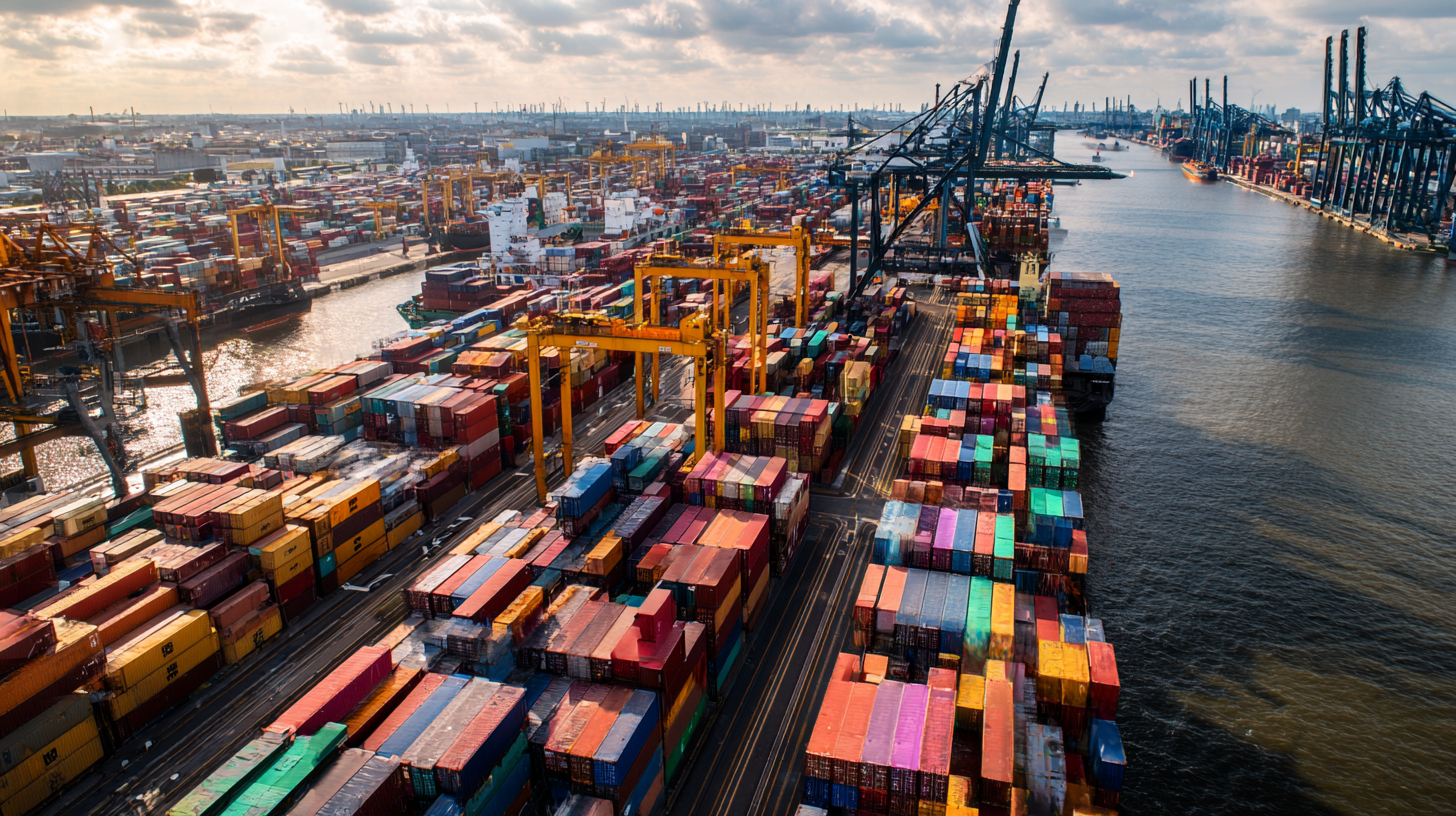
What is the Significance of Best Suppliers in Global Procurement Strategies
In the intricate landscape of global procurement strategies, the significance of suppliers cannot be overstated. A robust supplier base is not merely a component of procurement; it is a pivotal factor that influences the overall efficiency and success of supply chain operations. According to a report by McKinsey & Company, organizations that effectively manage their supplier relationships can achieve cost reductions of up to 20% and enhance service delivery by approximately 30%. Furthermore, the Global Supply Chain Institute highlights that suppliers contribute significantly to innovation and competitiveness, with businesses relying on them for about 70% of their new product development. As companies navigate the complexities of international markets, understanding the crucial role suppliers play in procurement strategies becomes paramount for long-term sustainability and success.

Significance of Quality Suppliers in Enhancing Global Procurement Efficiencies
In today's interconnected marketplace, the role of quality suppliers is paramount in optimizing global procurement efficiencies. A reliable supplier not only ensures the timely delivery of goods but also enhances the overall quality of products offered. By establishing robust supplier relationships, organizations can foster innovation and resilience in their supply chains, which is crucial for maintaining a competitive edge. The collaborative process between a company and its suppliers can lead to significant cost savings and operational efficiencies, as partners work together towards shared objectives.

Moreover, investing in quality suppliers contributes to risk mitigation in procurement strategies. With rising market volatility and potential disruptions, having dependable suppliers allows businesses to navigate challenges more effectively. Quality suppliers are often more adaptable and have better contingency plans, which can minimize delays and maintain consistency. Additionally, as companies increasingly prioritize sustainability, partnering with responsible suppliers can enhance a firm's reputation and meet growing consumer demand for ethically sourced products.
Thus, the significance of quality suppliers in global procurement cannot be overstated; they are essential for driving efficiency, fostering innovation, and ensuring long-term success.
Impact of Supplier Relationships on Cost Savings and Supply Chain Resilience
Establishing robust supplier relationships is pivotal in shaping cost savings and enhancing supply chain resilience. When companies prioritize fostering strong connections with their suppliers, they unlock opportunities for negotiating better pricing, which directly impacts their overall procurement costs. A collaborative approach enables organizations to leverage the expertise and capabilities of their suppliers, thus driving innovation and efficiency in the procurement process.
Tips: To strengthen supplier relationships, organizations should invest in open communication and regular engagement. Schedule quarterly reviews to discuss performance and address any concerns. Additionally, consider developing partnerships based on mutual trust and understanding, which can lead to innovative solutions that benefit both parties.
Moreover, resilient supply chains are those that can adapt to unexpected challenges, such as disruptions in delivery or fluctuations in demand. When companies build strong ties with their suppliers, they gain access to alternative solutions and rapid response strategies in times of need. This adaptability can significantly reduce the impact of external disturbances on the supply chain.
Tips: Diversifying your supplier base can enhance resilience. Do not rely on a single supplier for critical components; instead, establish relationships with multiple suppliers. Furthermore, implementing a clear risk management strategy will allow your organization to respond swiftly and effectively to supply chain disruptions.
Trends in Supplier Selection: Data-Driven Strategies for Global Procurement
In today's dynamic global market, the significance of data-driven strategies in supplier selection cannot be overstated. Organizations are increasingly relying on analytics to identify the best suppliers that align with their procurement goals. By leveraging data from various sources, businesses can assess supplier performance, market trends, and potential risks, enabling them to make informed decisions. This analytical approach not only enhances the efficiency of the procurement process but also supports the alignment of sourcing strategies with overall business objectives.
Additionally, the trends in supplier selection highlight a growing emphasis on sustainability and ethics. Companies are recognizing that their suppliers' practices directly impact their brand reputation and customer trust. As a result, procurement teams are utilizing data to evaluate not just cost and quality, but also social and environmental factors. The integration of these criteria into supplier selection processes paves the way for stronger, more resilient supply chains and fosters partnerships that prioritize long-term value over short-term gains. Embracing these data-driven strategies ultimately transforms procurement into a strategic function that contributes significantly to organizational success.
What is the Significance of Best Suppliers in Global Procurement Strategies - Trends in Supplier Selection: Data-Driven Strategies for Global Procurement
| Dimension | Value |
|---|---|
| Supplier Reliability | 92% |
| Cost Competitiveness | 85% |
| Quality Assurance | 90% |
| Sustainability Practices | 80% |
| Technological Capabilities | 88% |
| Market Responsiveness | 87% |
| Geographic Reach | 75% |
| Customer Service | 89% |
The Role of Supplier Diversity in Fostering Innovation and Competitive Advantage
Supplier diversity plays a crucial role in shaping innovative solutions and enhancing competitive advantage within global procurement strategies. By incorporating a wide range of suppliers—especially those from underrepresented groups—organizations can tap into unique perspectives and creativity that foster innovation. Diverse suppliers often approach problems differently, driven by their varied backgrounds and experiences. This influx of fresh ideas not only fuels the development of new products and services but also challenges conventional thinking, leading to breakthroughs that can set a company apart in a crowded marketplace.
Moreover, embracing supplier diversity enhances a company’s reputation and appeal. Today’s consumers are increasingly supportive of businesses that prioritize inclusivity and social responsibility. By sourcing from diverse suppliers, companies not only fulfill ethical commitments but also engage with a broader customer base that values diversity. This strategic alignment not only drives customer loyalty but also positions the company as a leader in corporate responsibility, ultimately contributing to a stronger bottom line. As organizations increasingly recognize the strategic importance of diverse suppliers, they lay the groundwork for sustained innovation and competitiveness in the global marketplace.
Evaluating Supplier Performance: Metrics That Matter in Global Procurement Strategies
In today’s competitive global marketplace, evaluating supplier performance is crucial for organizations aiming to achieve strategic procurement success. Metrics play a key role in this evaluation process, helping procurement teams assess various aspects of supplier operations. Metrics such as delivery performance, quality assurance, and cost efficiency provide a comprehensive view of supplier reliability. Additionally, the implementation of supplier scorecards enhances transparency in sourcing relationships, allowing companies to easily track performance and identify areas for improvement.

The rise of data analytics and artificial intelligence in procurement further elevates the importance of these metrics. By harnessing these technologies, organizations can automate supplier assessments and gain deeper insights into performance trends. This transformation not only bridges the gap between traditional procurement processes and strategic management but also enables teams to proactively manage risks and enhance supplier relationships. As procurement continues to evolve, the strategic use of performance metrics will remain a cornerstone for businesses looking to foster successful supplier partnerships and drive long-term value.
